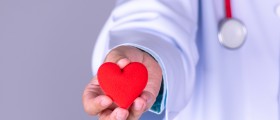
About Legionnaires’ disease
Legionnaires’ disease is an extremely serious type of the pneumonia that is caused by bacterium called legionella, and the disease is also known under the name of legionellosis. Unlike other kinds of bacteria, the one that causes this disease cannot be spread from one person to another, but instead it is inhaled along with the contaminated water mist coming either from showering, or from air-conditioning units. From the moment of the exposure to the bacteria, it usually takes 2 weeks before the disease develops, and the first symptoms usually consist of headache, fever that is even higher than 40 C, pain in the muscles and chills. The symptoms that will follow the initial ones are cough, pain in the chest, tiredness, diarrhea, vomiting, nausea, and loss of the appetite. Having in mind the fact that this condition affects lungs primarily, as well as having in mind the seriousness of the complications possible, it is important to visit the doctor right away. The diagnosis will be made after special tests, because it is not easy to distinguish this type of pneumonia from others. Besides, blood test, a chest X-ray and CT scan may also be necessary. Some cases require testing of a sample of lung tissue.
Complications of Legionnaires’ disease
In most of the cases, this illness, as well as its symptoms, can be treated very successfully with antibiotics, the only available method of the treatment. It is important to react in time, because the sooner it is diagnosed, the better the chances for a successful recovery are. However, there are cases in which this treatment is simply not effective, and the symptoms may linger. On the other side, ineffective treatment very often leads to certain consequences, some of which may be fatal. The most frequent consequence is respiratory failure, which means that the lungs cannot supply the body with the needed amount of oxygen, and carbon dioxide cannot be removed from the blood entirely. It is also possible that Legionnaires’ disease will cause septic shock in cases of an unexpected and serious blood pressure, because vital organs will not be supplied with the necessary blood, and the heart will have to work with more efforts, which will eventually weaken it. What may also happen as a consequence of this disease is acute kidney failure, and all these complications may have a fatal outcome, and what makes it even worse is the fact that it is very hard, and practically impossible to predict when any of them will occur.

















Your thoughts on this
Loading...